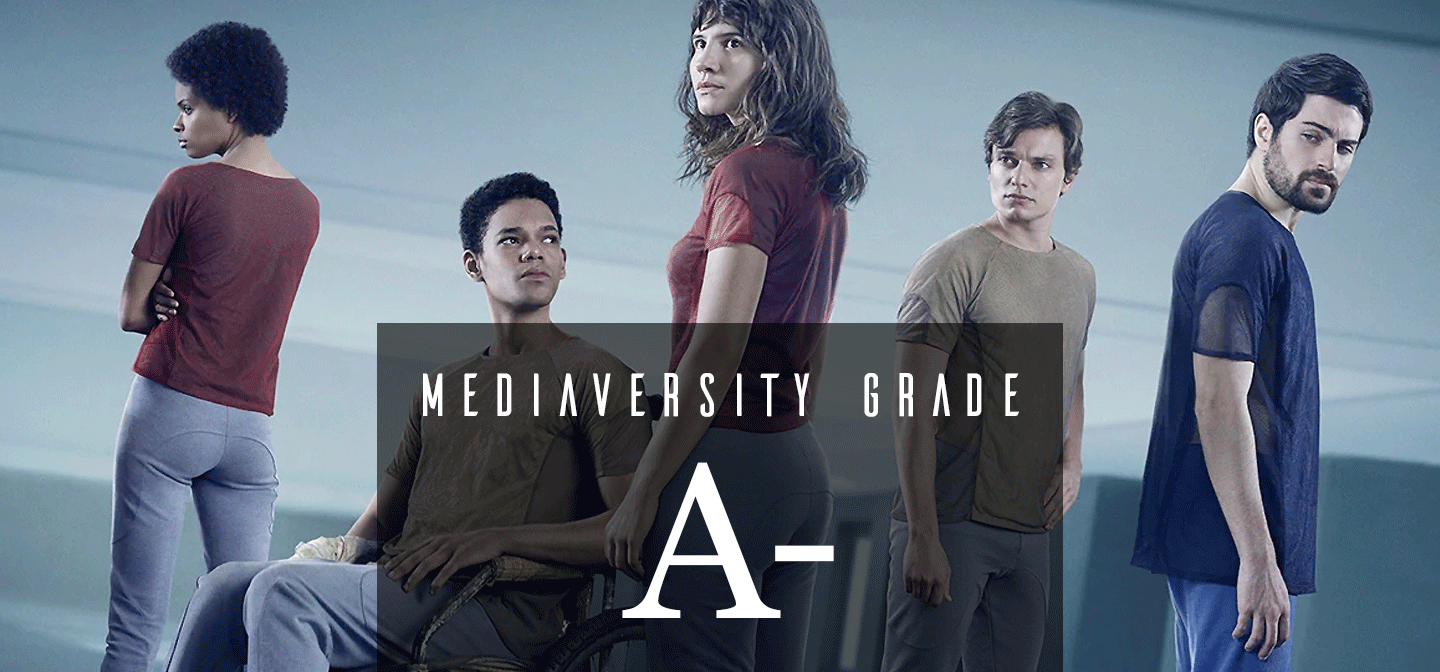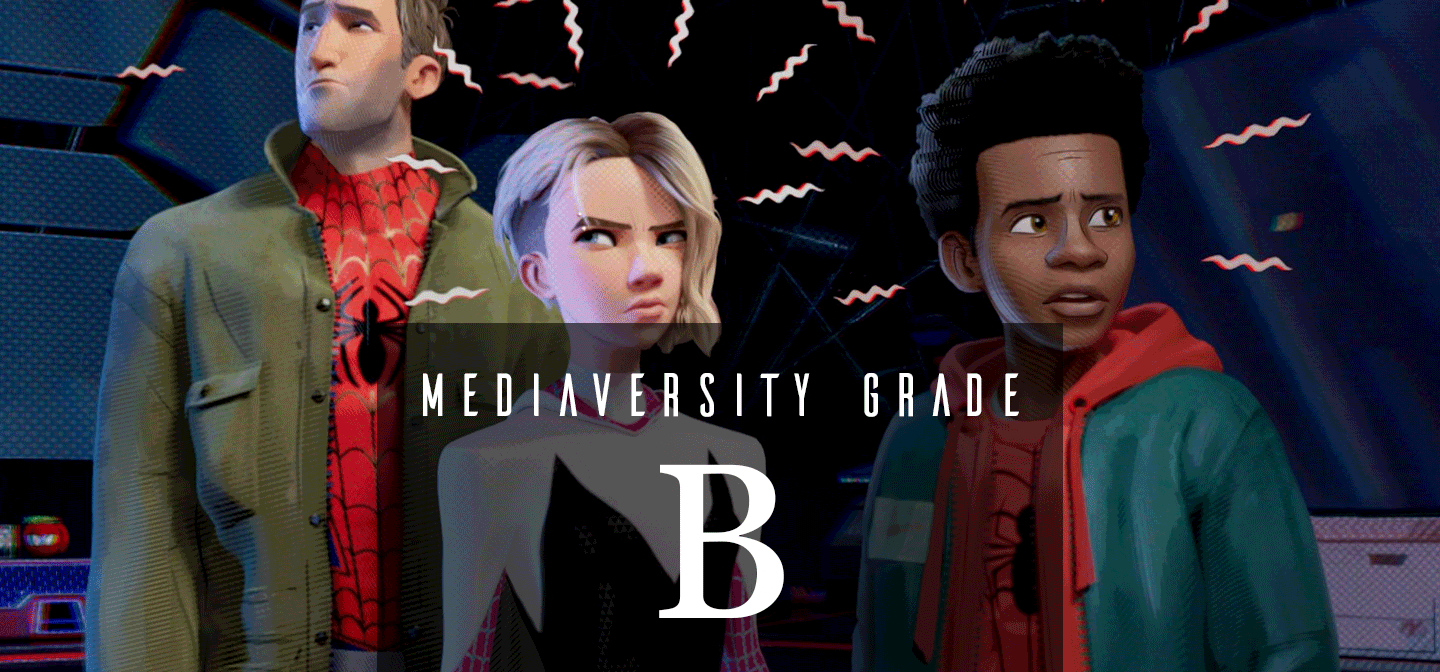Mars One
“Mars One naturally works in disabled narratives through several of its key characters.”
Title: Mars One (2022) / Portuguese: Marte Um
Director: Gabriel Martins 👨🏾🇧🇷
Writer: Gabriel Martins 👨🏾🇧🇷
Reviewed by Li 👩🏻🇺🇸
Technical: 4.25/5
At its world premiere at Sundance Film Festival last week, director-writer Gabriel Martins’ family drama Mars One settled right into the festival’s indie sensibilities. A languid pace and sundrenched lighting belies the turmoil that besets the Martins, a family of four who live in Contagem, Brazil. Like many, they’re just trying to pay the bills and spend time with loved ones while navigating a backdrop of political unrest and societal expectations, not to mention the weighted expectations of each other.
With such a straightforward premise, it’s that much more impressive that director Martins, in his second feature film, manages to elevate Mars One into more than just a humanistic character study. By focusing on relationships, rather than individuals, Martins presents universal dynamics that most viewers will find relatable—if not through one set of characters, then surely through another—and does so through subtle details that feel more confident than the way flashy exposition or over-plotting clamor for a viewer’s attention.
For example, rather than tell the audience that university student Eunice Martins (Camilla Damião) is queer, we see her watching another young woman at a club, her gaze heated enough that the man attempting to dance with her backs off with an encouraging, “I see you, girl. Go for it.” Instead of hearing Eunice’s little brother Deivinho (Cícero Lucas) explain that he’s building a telescope, viewers watch him inexplicably collect PVC pipes early in the film, its meaning snapping into focus much later when we see him shyly presenting a homemade telescope to his parents. It’s in these small moments that Mars One flourishes and becomes more than just a drama, but rather a reflection of all the unspoken actions we commit and misconstrue. By exploring those pockets of human misunderstanding, and patiently waiting for underlying love to run its healing course, Mars One gifts its viewers with kindred pains and hurts, yet threaded with the unwavering sense of optimism we so often seek through cinema.
Gender: 5/5
Does it pass the Bechdel Test? YES
Among the four main protagonists that make up the Martins, each of them humanized through their own respective fears and motivations, two are women: matriarch Tércia (Rejane Faria) and her daughter Eunice. Along with Eunice’s girlfriend Joana (Ana Hilãrio), different dynamics arise between them, giving us various snapshots of what it’s like to be a woman growing up in the outskirts of Brazilian metropolis Belo Horizonte.
Generational friction between mother and daughter can be seen in a telling conversation, as Tércia and Eunice wash dishes at the kitchen sink. Eunice urges her mother to get Deivinho involved in the housework, warning that without early intervention, he’ll wind up as helpless as her father. Tércia responds defensively, saying she enjoys taking care of them. With this small exchange, Mars One deftly shows us the perspectives of women from two different age groups, and how they’ve each adapted to—or struggled against, in Eunice’s case—society’s expectations of women.
In another type of female relationships, we see romantic love between Eunice and Joana as the two meet at a club, date, and eventually move in together. Even encounters between Joana and Eunice’s mother get breathing room and development over the course of the film: At first, Tércia balks at seeing her daughter holding hands with Joana, but by film’s end her change of heart is communicated through her simple going-away present to her daughter of not one, but two teacups. ”One for Joana,” Tércia confirms.
Race: 5/5
In his opening remarks to Mars One’s virtual premiere, director Martins asserts it as a love letter to Brazilians—specifically, to the Black community. That sentiment carries throughout the film, as characters of all skin tones and socioeconomic statuses populate the screen.
Black and brown characters take center stage and never fall into archetypes. Sure, the Black Martins family never has quite enough money to go around, but Joana—who is also Black—hails from an upper-middle-class background, her large house and formal family dinners intimidating Eunice into self-conscious silence. And sure, it’s true that patriarch Wellington (Carlos Francisco) and his wife Tércia work blue-collar jobs as cleaners for richer folks, but Eunice is college-educated while Deivinho dreams of becoming an astrophysicist. By presenting characters from various walks of life, Mars One shows a broad range of what it means to be Black in Contagem.
Bonus for Disability: +1.00
Mars One naturally works in disabled narratives through several of its key characters. Gay social media icon Tokinho, who is a little person, plays himself in the role of Tércia’s good friend. The scenes they share exude camaraderie, while health issues arrive with similar ease: When Tércia finds out Tokinho had been throwing up and sent to see the doctor, we see her fuss over him in a bubble bath, Tokinho putting up a brave face and waving off his friend’s mother-henning.
Under the surface, encounters with mental health take place most explicitly through Wellington. At four years sober, life soon comes crashing down around him, making his sobriety harder than ever to maintain. And even with the stalwart support of Tércia, who attends Alcoholics Anonymous meetings with him, she’s dealing with her own set of problems. A prank bomb set off by a reality show early in the film has repercussions that last throughout her entire storyline, as Tércia experiences insomnia and depression.
Even young Deivinho grapples with anxiety from the immense pressure of his father’s expectations for him to become a star footballer, to the point of committing self-harm. All these characters and their respective conditions interplay with a wonderful balance of emotional heft, yet everyday normalization.
Bonus for LGBTQ: +1.00
Eunice and her girlfriend Joana enjoy ample screen time, as viewers watch the couple fall in love and nest. Their relationship thankfully avoids the sense of being sanitized or overly domesticated for a straight audience. During a romantic scene, where midnight blue shadows play over sliding skin, the two women have sensual sex that never feels exploitative. And even as Joana may ostensibly be just “the girlfriend” in a film that focuses on the Martins family, she has her own sense of self thanks to audiences being introduced to her parents, or through one-on-one interactions with Eunice’s family members.
Bonus for Age: +1.00
The actors behind Tércia and Wellington were both at least 60 years old at the time of the film's release, an age group—particularly among women—that’s sorely underseen in Hollywood. It’s great to see these characters portrayed in a way that neither ignores the markers of their generation, such as religiosity or social conservatism, while still showing that no matter our age, we continue to change and mature with the times.
Mediaversity Grade: A+ 5.75/5
The world holds so many more experiences than mainstream blockbusters would like for us to explore. Mars One uncovers just one corner of that human experience and easily reveals how diverse even one family can be, if given the chance to follow characters who don’t fit a singular idea of who gets to be on the silver screen.




